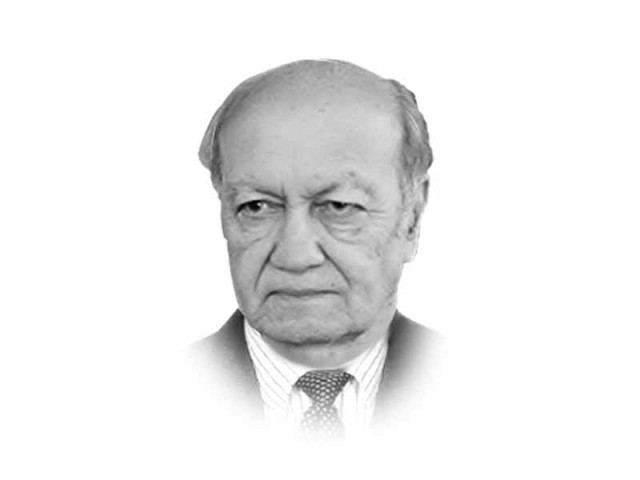Politicians should rise to the challenge
The threat is such that it demands comprehensive response where civilian leadership’s role is of crucial significance

The writer is a retired lieutenant general of the Pakistan Army and served as chairman of the Pakistan Ordnance Factories Board
Rise of sectarianism and unchecked killings by the LeJ, especially of Hazaras in Balochistan, as well as of people in Gilgit-Baltistan, has destroyed Pakistan’s integrity and polarised society. The TTP and the LeJ are also targeting people in Karachi, Lahore and other urban centres and their rancour can be traced back to the hate literature and speeches that are spewed from some mosques and seminaries. In this, the religio-political parties could play a positive role by exposing dangers inherent in the pursuit of these intractable sectarian prejudices.
The proxy war that is being fought on our soil between Saudi Arabia and Iran has been another contributory factor in which some militant groups have been their local partners. Hopefully, there is now a better understanding with these countries and financial support to militant groups is being withdrawn.
The cumulative impact of failure to vigorously implement the National Action Plan could lead to Pakistan becoming fertile environment for the Islamic State (IS) and other emerging global and regional militants. Already, there are indications that the IS is recruiting members in Pakistan.
The government also needs to calibrate its anti-terrorist policies that do not weaken fragile democratic institutions. The balance of power has further shifted in favour of the military due to the establishment of military courts and a lacklustre response to security and governance issues. The accumulation of pending terrorist cases created a serious security problem. The military leadership seized the initiative for setting up military courts that also has popular support. Now that military courts are a reality, the best option for the judiciary and the executive would be to reform and strengthen the system within the next two years and reclaim the people’s confidence.
The recent terrorism in France aroused deep public indignation throughout the world that could have serious ramifications for the Muslim world. It is likely to give rise to increased intolerance and discrimination against Muslims in Europe and elsewhere, and give boost to conservative, right-wing parties. It was a vivid demonstration of leadership by the French president to mobilise his nation in condemning the brutal killings of people in the attack on Charlie Hebdo by a fanatic group belonging to al Qaeda and the IS. It was a stirring spectacle to witness over 40 world leaders — despite some having dubious credentials — from several continents standing in solidarity with the fallen victims. They were giving a clear message of not giving in to terror and showing resolve to protect their cherished values. In contrast, where are our solidarity marches and protests denouncing terrorists? It is rare to find our civilian leaders reaching out to the public after a terrorist assault and showing their resolve. Our civil society is inclined towards participating in dharnas, but not when it involves serious national issues. What is, however, inspirational is the leadership exhibited by General Raheel Sharif. He clearly stands out as someone who knows how to lift the morale of the stricken and give hope to the nation that the war against militancy will be won. What prevents our civilian leaders from showing their full support to terror victims? It is not for optics that the nation demands their presence. Sharing the sufferings of our people should come naturally to them. Moreover, the endless squabbling between the PML-N and the PTI on the credibility of elections has remained a huge distraction and hopefully would be brought to a decent closure. Otherwise, it will reinforce the image that the priorities of politician are lopsided and narrow, vested interests take precedence over grave national issues.
It is crucial that we fight the war against terrorism without further weakening our democratic structure. A strong democratic framework is an essential prerequisite in combating terror and bringing peace to our land. It would be naive to believe that the government, by gradually passing on its responsibilities to the military either by design or through sheer incompetence, will be able to steer the country from its existential crisis. The nature of the threat is such that it demands a comprehensive response in which the civilian leadership’s role is of crucial significance. It is not merely a fight between the military and militants, but a fight for our ideology, our values and our national integrity.
Published in The Express Tribune, January 21st, 2015.
Like Opinion & Editorial on Facebook, follow @ETOpEd on Twitter to receive all updates on all our daily pieces.














COMMENTS
Comments are moderated and generally will be posted if they are on-topic and not abusive.
For more information, please see our Comments FAQ